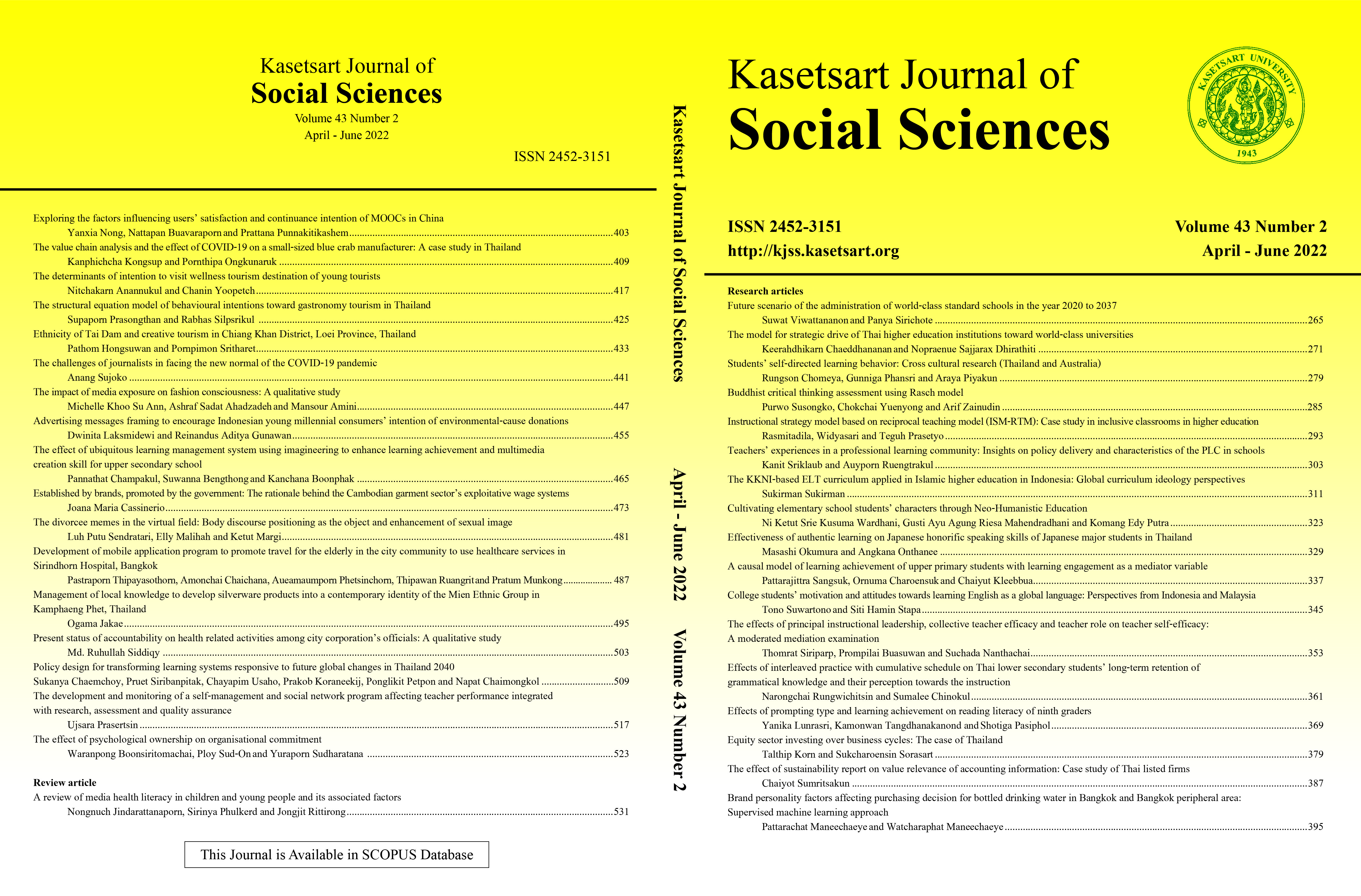The KKNI-based ELT curriculum applied in Islamic higher education in Indonesia: Global curriculum ideology perspectives
Keywords:
curriculum ideologies, ELT curriculum, Indonesian national qualification framework, Islamic higher education, KKNI curriculumAbstract
The study aims at evaluating the alignment between ELT (English Language Teaching) learning outcomes within the current national guidelines of Indonesian Islamic higher education and the global curriculum ideologies proposed by Schiro (2013). The researcher applied a qualitative research design by conducting document analysis. It was found that the three KKNI-based ELT learning outcome classifications greatly align with the global curriculum ideologies proposed by Schiro (2013). In particular, scholar academic ideology deals only with learning outcomes in knowledge mastery, whereas social efficiency ideology addresses two learning outcomes, namely, attitudes and values, and skills. Then, learner centred ideology and social reconstruction ideology refer to all aforementioned learning outcomes. The principal theoretical implication of this study is therefore that the Indonesian Islamic higher education in no way contradicts the ideology of global education. In this case, the KKNI-based ELT learning outcomes structured by Indonesian Islamic higher education greatly align with the global curriculum ideologies proposed by Schiro (2013). Lastly, this study might also suggest the permissibility to adapt various ideologies in developing the curriculum.
Downloads
Published
How to Cite
Issue
Section
License

This work is licensed under a Creative Commons Attribution-NonCommercial-NoDerivatives 4.0 International License.
This is an open access article under the CC BY-NC-ND license http://creativecommons.org/licenses/by-nc-nd/4.0/










